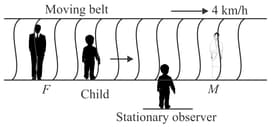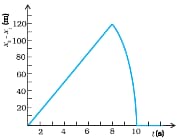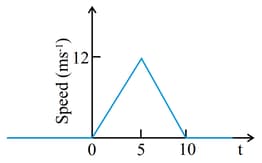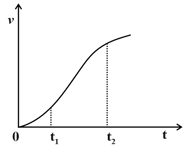Mizoram Board Solutions for Chapter: Motion in a Straight Line, Exercise 1: EXERCISES
Mizoram Board Physics Solutions for Exercise - Mizoram Board Solutions for Chapter: Motion in a Straight Line, Exercise 1: EXERCISES
Attempt the practice questions on Chapter 3: Motion in a Straight Line, Exercise 1: EXERCISES with hints and solutions to strengthen your understanding. PHYSICS PART 1 TEXTBOOK FOR CLASS XI solutions are prepared by Experienced Embibe Experts.
Questions from Mizoram Board Solutions for Chapter: Motion in a Straight Line, Exercise 1: EXERCISES with Hints & Solutions
In which of the following examples of motion, can the body be considered approximately a point object:
Read the statement below carefully and state with reasons and examples, if it is true or false:
A particle in one-dimensional motion with zero speed may have non-zero velocity.
Read the statement below carefully and state with reason and example, if it is true or false:
A particle in one-dimensional motion with constant speed must have zero acceleration.
Read the given statement below carefully and state with reasons and examples, if it is true or false:
A particle in one-dimensional motion with positive value of acceleration must be speeding up.
On a long horizontally moving belt (Figure), a child runs to and fro with a speed (with respect to the belt) between his father and mother located apart on the moving belt. The belt moves with a speed of . For an observer on a stationary platform outside, what is the
(a) speed of the child running in the direction of motion of the belt ?
(b) speed of the child running opposite to the direction of motion of the belt ?
(c) time taken by the child in (a)and (b)?
Which of the answers alter if motion is viewed by one of the parents?

Two stones are thrown up simultaneously from the edge of a cliff high with initial speeds of and . Verify that the graph shown in Figure correctly represents the time variation of the relative position of the second stone with respect to the first. Neglect air resistance and assume that the stones do not rebound after hitting the ground. Take . Give the equations for the linear and curved parts of the plot.

The speed-time graph of a particle moving along a fixed direction is shown in Figure. Obtain the distance traversed by the particle between
(a) to
(b) to

What is the average speed of the particle over the intervals in (a) and (b)?
The velocity-time graph of a particle in one-dimensional motion is shown in Figure.

Which of the following formulae are correct for describing the motion of the particle over the time-interval to ?
